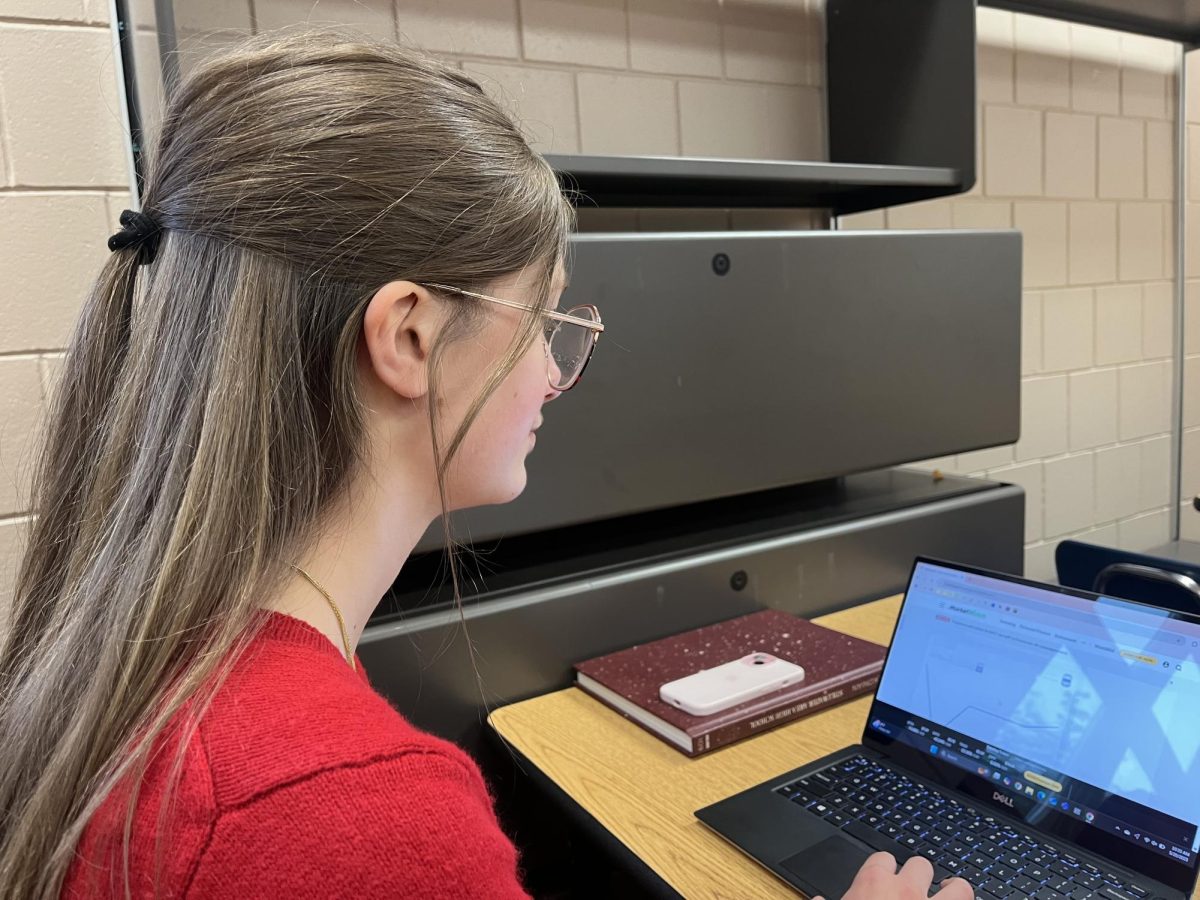High school students from Minnesota gathered at the state Capitol to protest a bill that was causing a lot of controversy on Feb 20. If passed, this bill could change how schools talk and offer Ethnic and Culture Studies classes. It would remove the requirement to offer the class in schools.
Bill HF29 aims to eliminate the current requirement for high school schools to offer Ethnic and Cultural Studies courses — a move that has drawn strong reactions from students, teachers and community members alike.
At the Minnesota State Capitol, the hearing brought in a large group of young advocates who showed up to defend a curriculum they believe is vital for learning about identity, community and the true history of the United States.
“It is going to harm students,” junior Elena Majeski said.
There is a new law they want to pass that would go back to how social studies was taught in 2012. Some people think that is bad because it would get rid of all the new content added over the years. “In 2021, Minnesota changed things to include more of that, so kids could learn how race and culture affect life in the U.S.,” Sahan Journal said.
“If this bill is passed, it will reverse the social studies curriculum back to 2012 benchmarks,” senior Elsie Rush said, “This bill would reverse the social studies curriculum as well.”
According to students, Ethnic and Cultural Studies classes give students the confidence to speak their voices and are a way to connect with their peers on a deeper level. It also improves the student’s understanding of history on a greater level. They believe these lessons help students engage with topics like immigration, racism and resistance movements.
“Keeping the class mandatory would help students understand on a deeper level a lot of historical events that are taught only one sidely,” Rush said.
A 2021 study by Stanford University found that students enrolled in Ethnic and Cultural Studies courses had higher attendance rates, better grades and were more likely to graduate. The report emphasized that students — especially those from marginalized communities — often feel more seen and valued in these classes, leading to higher engagement and academic success.
For many students, Ethnic and Cultural Studies courses represent more than education -they represent belonging. “It’s the one class where I know everyone’s name,” Majeski said. “I feel safe there because it is filled with smart people who want to better the world, and make everyone more educated.”
Students connect the Ethnic and Cultural Studies class to their emotional values and reflect on what they learn. The class allows students to explore their heritage and understand how it fits into the larger aspects of American history. It helps form who they become and who they want to be. Students say that it is such an important class in their lives and want students to be able to have the same experience.
“I have been in ethnic cultural studies class for two years now. It is a class that shaped how I was able to articulate myself. I have made friends and learned in that class so it is really important to me,” Rush said
Students feel the possible passing of the HF29 bill would limit all these students have accomplished. Students look forward to the Ethnic and Cultural Studies class and taking it away would only harm.
The students worry that removing requirements to offer these classes would lower Minnesota’s overall education. “If you look at the states that have them banned or restricted of some kind, they consistently fall into the worst, bottom tier of education like Oklahoma,” senior Dom Slaughter said.
Students take pride and passion in the class to better educate themselves. This proves that taking the class away would only decrease knowledge of history.
The students made it clear that they came to the Capitol to be more than observers — they came as advocates.
“We brought strong arguments and we were all there as one united force,” Majeski said. “The students testified their voice and all their power to keep what they admire.”
Students said they felt proud to stand up for their school district which has impacted their education and built who they are today. They loved to represent their passion towards ethnic and cultures to people who do not have the same deep sort of passion these students have. Their messages were clear: HF29 should not be passed, and Ethnic and Cultural Studies classes should remain an offering to better everyone and their education.
“There are not a lot of schools where full history is not being taught or is being taught in a whitewashed kind of downplay way,” Slaughter said.
If the passing of HF29 is approved, it will just become less and less relevant to schools to teach all history and the depths of it as well. The future of HF29 is still uncertain as it continues through the legislative process. But for the students who showed up that day, the impact of speaking out their voices is already clear. They left the Capitol with their heads held high, having stood up for a curriculum that, to them, represents understanding, respect, and the future of education.








